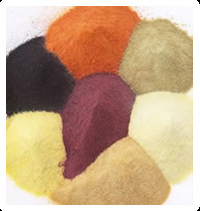Gravel Root Purchase & Information

Alternative Names
Eupatoire Pourpre, Herbe de Joe Pye, Joe Pye, Kidney Root, Purple Boneset, Queen of the Meadow, Raíz de Eupatorio, Roter Wasserhanf, Trumpet Weed CAUTION: Please refer to separate listings for Boneset,Trailing Arbutus
Scientific Name
Eupatorium Purpureum
Why Do People Use Gravel Root?
The oral preparations of Eupatorium purpureum (Gravel Root), like gravel root powder, are used for renal or vesicular calculi, urinary calculus, painful urination, cystitis, prostatitis, urethritis, gout and rheumatism. It is also used orally for fever from malaria, general fever, dengue virus infection, as an antacid, typhus, emetic, aperitif, diuretic, for inducing sweating, for stimulant and as a general tonic.
Is It Safe To Use?
Likely Unsafe - Oral consumption of products containing hepatotoxic pyrrolizidine alkaloid (PA) constituents are considered unsafe to use. Even low concentrations of hepatotoxic PAs can be responsible for severe veno-occlusive disease. Hepatotoxic PAs may also have mutagenic and carcinogenic effects. So patients are advised to be cautious about gravel root powder that is not labeled and certified as hepatotoxic PA-free.
Likely Unsafe In Pregnancy - Oral consumption of gravel root during pregnancy should be avoided. Preparations of gravel root, which contain hepatotoxic pyrrolizidine alkaloid (PA) constituents, may have hepatotoxic and teratogenic effects. About the safety of gravel root products that do not contain hepatotoxic PAs, there is insufficient and reliable information available.
Likely Unsafe In Pregnancy - Oral consumption of gravel root powder in breast feeding women is also considered unsafe. Hepatotoxic pyrrolizidine alkaloid (PA) in gravel root may adversely effects infant through breast milk.
How Effective Is Gravel Root?
To rate the effectiveness of Eupatorium purpureum, there is scarce and unreliable information available.
How Gravel Root Works?
Most effective part of Eupatorium purpureum are the rhizome, roots and aerial parts. Despite of the fact that individuals think gravel root has antirheumatic, diuretic and antilithic properties, this has not been scientifically proven yet. Some confirmations recommend an ethanol extract of gravel root may have anti-inflammatory effects.
Gravel root powder consist of different pyrrolizidine alkaloids (PA), some of which may have poisonous effects. PAs are most abundant in the plant roots, but may be found in all plant parts. PAs, especially unsaturated PAs, can result in hepatotoxicity. Cyclic diesters, for example, senecionine and retrorsine, are the most hepatotoxic. 10 to 20 mg ingestion of PAs can result in veno-occlusive disease. PAs are metabolized by cytochrome P450 3A4 (CYP3A4) to harmful pyrroles and dehydroalkaloids. Cytochrome inducers, for example phenobarbital, appear to increase toxicity level. Pyrroles are discharged as N-acetyl cysteine conjugates. Various researchers guess that early administration of N-acetylcysteine may lessen toxicity level.
What Are The Side Effects /Adverse Reactions of Gravel Root?
Gravel root powde rmay cause toxicity. The big concern about gravel root is the hepatotoxic pyrrolizidine alkaloid (PA) content. These constituents are pneumotoxic, hepatotoxic, mutagenic and carcinogenic. Chronic exposure to different plants containing hepatotoxic PA is related with veno-occlusive disease. Manifestations of intense veno-occlusive disease include diarrhea and vomiting, colicky pains in epigastrium and ascites formation within some days. Induration and enlargement of the liver happens within a couple of weeks. Dietary supplement items sold in the United States are not needed to incorporate the quantity of PAs they may contain; that’s why, all oral preparations of gravel root should be considered risky.
Gravel root powder can result in allergic side effects in people sensitive to the the Compositae or Asteraceae family of plants. Plants from this family include marigolds, chrysanthemums, ragweed, daisies, and many other herbs.
How Gravel Root Interacts With Other Herbs and Supplements?
Herbs Containing Hepatotoxic Pyrrolizidine Alkaloid (PA) - Combination of gravel root powder and herbs containing hepatotoxic pyrrolizidine alkaloid (PA) may increase the risk of additive toxicity. Hepatotoxic PAs containing herbs include borage, comfrey, coltsfoot, gravel root, boneset, alkanna, butterbur, forget-me-not, hemp agrimony, golden ragwort, groundsel, hound's tongu, Senecio species plants dusty miller and tansy ragwort.
Herbs That Induce Cytochrome P450 3A4 (CYP3A4) - Herbs that induce CYP3A4 may enhance the conversion rate of hepatotoxic PAs into toxic metabolites, increasing toxicity. Herbs that induce CYP3A4 include garlic, echinacea, schisandra and licorice.
How Gravel Root Interacts With Drugs?
Cytochrome P450 3A4 (CYP3A4) Inducers - Interaction rating between gravel root powder and cytochrome inducers is moderate, so be careful about this mixture. Hepatotoxic pyrrolizidine alkaloids (PA) are substrates of cytochrome P450 3A4 (CYP3A4). Drugs that induce cytochrome may enhance the conversion of PAs to lethal metabolites. Some drugs that induce CYP3A4 include phenobarbital, rifabutin (Mycobutin), carbamazepine (Tegretol), rifampin, phenytoin (Dilantin) and other drugs as well.
Lithium - Interaction rating between gravel root powder and lithium is moderate, so be careful about this mixture. Gravel root has diuretic properties. Therefore, because of these potential diuretic effects, gravel root may increase levels and lessen excretion of lithium. So, such patient should be cautious about their lithium dosage.
How Gravel Root Interacts With Foods?
Not known.
How Gravel Root Interacts With Lab Tests?
Not known.
How Gravel Root Interacts With Diseases and Conditions?
Cross-Allergenicity - Eupatorium purpureum may also responsible for allergic side effects in individuals sensitive to the Compositae or Asteraceae family of plants. Members of this family include marigolds, daisies, chrysanthemums, ragweed and ther herbs.
Liver Disease - Hepatotoxic pyrrolizidine alkaloids (PA) may exacerbate liver disease.
What Should Be the Dose/Administration of Gravel Root?
There is no typical dosage of gravel root.
Comments
None.
General Certificate of Analysis (COA)
Specification sheet links below are a standard copy of the COA less the batch or lot number and manufactures dates. Specification sheet can be dated and should only be considered as a general information. Please contact and request an up to date COA if needed for specific updated information before placing order by filling out the contact form with product name and SKU number. If ordering quantities of twenty five kilos or more contact for availability.
